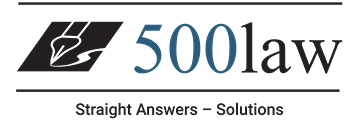TTAB vs. Federal Court vs. State Court
Deciding to go to court over a trademark dispute is intimidating enough, and then your attorney tells you that you have three different avenues in which to bring your lawsuit. Or, if you find yourself on the other side of this situation, now being forced to litigate before a Board you’ve never heard of, it can be just as frustrating. This article will attempt to flesh out the pros and cons of various litigation options when faced with a trademark dispute – the Trademark Trial and Appeal Board (TTAB), federal court and state court.
Starting with the TTAB, the TTAB is a governing body within the broader United States Patent and Trademark Office (USPTO). Per the USPTO website, the TTAB functions like a court for USPTO matters. The TTAB determines a person’s or entity’s right to register a trademark, and not whether a person has a right to use the trademark. It is generally the most inexpensive option for all parties. In a TTAB action, mediation is not required at any time. There are no hearings before the TTAB except for an optional final oral argument. However, the TTAB only has the authority to cancel a trademark registration, or refuse a pending application. The administrative trademark judges are not authorized to award money or injunctive relief of any kind. That means you cannot sue someone for damages, attorneys’ fees or costs in the TTAB. A benefit is that the Board is very familiar with trademark law, and arguably the most familiar. Note – this familiarity is tied to the power of the TTAB, which is limited to registrations and cancellations.
State court lawsuits generally cost more than those before the TTAB, but less than federal court, for all parties. In state court (at least in Florida), mediation is required prior to trial, and lawyers can argue for hours about whether this requirement is productive, and probably differs case-to-case and, and the benefits might be different for different parties. State courts generally provide a fairly full range of remedies including injunctive relief (which could force an infringer to stop using the mark, destroy the mark, delete, etc.), actual damages, profits of the infringer and attorneys’ fees and costs. However, jurisdiction and the scope of injunctions are limited to Florida and perhaps over some online usage. A setback to bringing a suit in state court is that state court judges are generally not as familiar with trademark law as the TTAB or federal judges.
Federal court is generally the most costly option for all parties. However, often bringing a suit in federal court yields the fastest adjudication or settlement. Like in state court, mediation is required prior to trial. The full range of remedies are also available in federal court – injunctive relief (stop using the mark and/or related domain name, destroy and delete, etc.); actual damages, profits of the infringer and attorneys’ fees and costs. Jurisdiction for federal court actions is nationwide, and injunctions are often enforceable nationwide and online. Finally, federal judges are generally much more familiar with trademark law than their state court counterparts, but, some would say, generally less than the TTAB (again, at least with issues that are within the TTAB’s realm which is limited to registrations and cancellations).
Whichever avenue your trademark dispute leads you, there are important distinctions between the three options listed above. Please contact our office if you have any questions regarding trademarks, litigation or the information in this article. One our trademark attorneys will be happy to help. We are very familiar and experienced with all three of the above venues.



